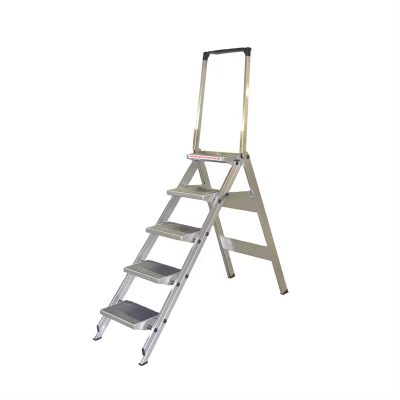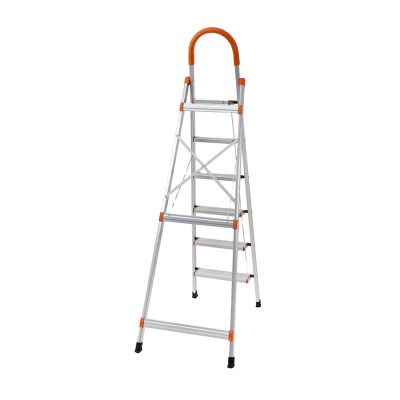In the fast-paced and demanding landscape of industrial operations, safety and efficiency are paramount. Among the myriad of tools and equipment employed, aluminum ladders emerge as indispensable assets, offering a perfect blend of robustness, versatility, and reliability. From manufacturing plants to warehouses and construction sites, these ladders play a pivotal role in facilitating access to elevated spaces while prioritizing worker safety. In this exploration, we delve into the critical significance of aluminum ladders in industrial environments, highlighting their contributions to enhancing productivity and mitigating risks.
Height Access Solutions:
Industrial facilities often feature sprawling layouts and complex machinery, necessitating access to elevated areas for maintenance, inspection, and repair tasks. Aluminum ladders serve as versatile height access solutions, enabling workers to reach overhead equipment, storage racks, and machinery with ease. Whether it’s conducting routine inspections on production lines or accessing elevated storage areas in warehouses, these ladders provide a safe and efficient means of reaching heights while minimizing downtime.
Safety Compliance and Regulations:
Worker safety is a non-negotiable priority in industrial settings, where adherence to safety regulations and standards is strictly enforced. Aluminum ladders are designed and manufactured to meet or exceed industry safety requirements, incorporating features such as non-slip rungs, sturdy handrails, and reinforced joints to enhance stability and reduce the risk of accidents. Additionally, regular inspection and maintenance protocols ensure that ladders remain in optimal condition, further bolstering safety and compliance efforts.
Durability and Resilience:
Industrial environments can be harsh and unforgiving, subjecting equipment to rigorous use and environmental stressors. Aluminum ladders are prized for their durability and resilience, thanks to their construction from high-grade aluminum alloys renowned for their strength and corrosion resistance. These ladders withstand the demands of daily use in industrial settings, retaining their structural integrity and performance even in challenging conditions such as exposure to chemicals, moisture, and extreme temperatures.
Customization and Specialized Solutions:
Every industrial operation has unique requirements and challenges, necessitating customized solutions to address specific needs. Aluminum ladder manufacturers offer a range of customization options, allowing industrial clients to tailor ladders to their exact specifications. From specialized configurations such as platform ladders and rolling ladders to custom height adjustments and load capacities, these tailored solutions optimize safety and efficiency for diverse industrial applications.
Efficiency and Productivity Gains:
By providing safe and reliable access to elevated spaces, aluminum ladders contribute to efficiency gains and productivity enhancements in industrial operations. Workers can perform tasks more effectively and expediently when equipped with the right tools, minimizing downtime and maximizing output. Moreover, the lightweight nature of aluminum ladders facilitates easy transportation and maneuverability, further streamlining workflow and enhancing overall operational efficiency.
Conclusion:
In the dynamic and safety-conscious landscape of industrial environments, aluminum ladders emerge as indispensable assets, essential for accessing elevated spaces while prioritizing worker safety. With their durability, versatility, and customizability, these ladders serve as cornerstones of efficiency and productivity, empowering industrial operations to thrive in the face of challenges. As industries evolve and technologies advance, aluminum ladders will continue to play a pivotal role in facilitating safe and successful operations, ensuring the well-being of workers and the continued success of industrial endeavors.







